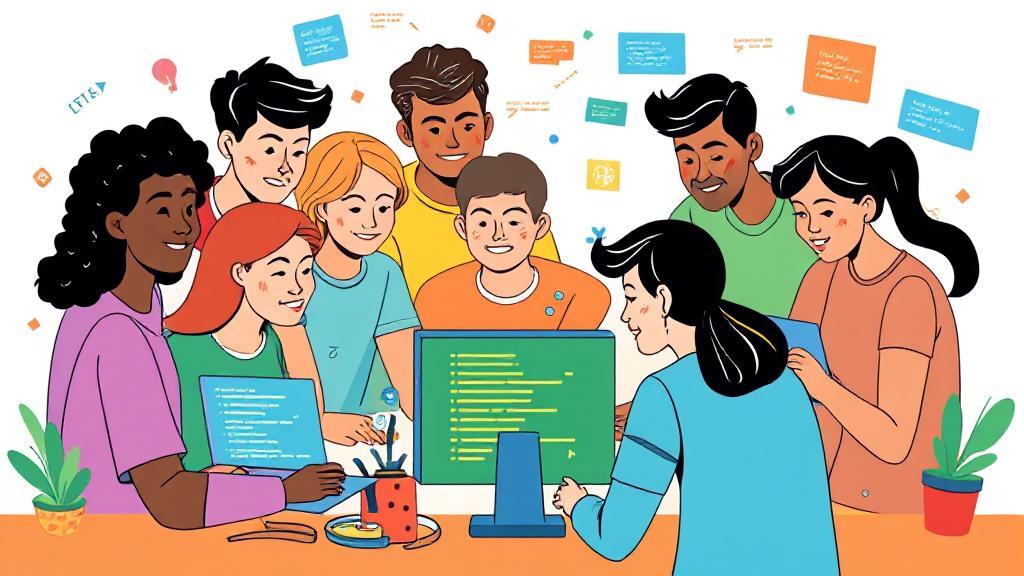Why Learn Programming?
Before diving into the how, let's explore the benefits of learning to code:
- Career Opportunities: The tech industry is booming, with high demand for skilled programmers
- Problem-Solving Skills: Programming enhances your ability to solve complex problems and think logically
- Creativity: Create anything from websites to mobile apps, games, and more
- Better Understanding of Technology: Learning to program helps you understand how technology works
- Automation: Automate repetitive tasks to save time and increase productivity
Choosing Your First Language
When starting out, it's crucial to pick a beginner-friendly programming language. Some excellent choices include:
- Python: Known for its readability and simplicity, Python is widely used in web development, data analysis, and artificial intelligence. Learn more about Python
- JavaScript: Essential for web development and creating interactive websites. Learn more about JavaScript
- Ruby: Known for its elegant syntax, often used with Ruby on Rails framework. Learn more about Ruby
Essential Concepts to Master
1. Variables and Data Types
2. Control Flow
- Conditional statements (if/else)
- Loops (for/while)
- Functions
3. Data Structures
- Arrays/Lists
- Dictionaries/Hash Maps
- Sets
- Tuples
Setting Up Your Environment
- Install a Code Editor: Choose from popular options like Visual Studio Code, Sublime Text, or Atom
- Install the Language: Download necessary software for your chosen language
- Version Control: Learn Git basics for managing code changes
- Terminal/Command Line Interface: Familiarize yourself with basic commands
Learning Resources
Online Platforms
- Codecademy: Interactive courses in various languages
- freeCodeCamp: Comprehensive programming curriculum
- The Odin Project: Full-stack development focused
- W3Schools: Web development tutorials and references
Practice Sites
- LeetCode: Coding challenges for problem-solving
- HackerRank: Practice coding and interview prep
- CodeWars: Progressive coding challenges
Books
- "Automate the Boring Stuff with Python" by Al Sweigart
- "Eloquent JavaScript" by Marijn Haverbeke
- "Code Complete" by Steve McConnell
Best Practices for Success
"The best way to learn programming is by actually programming." - Anonymous
- Start Small: Begin with simple projects and gradually increase complexity
- Practice Regularly: Dedicate consistent time to coding (even 30 minutes daily)
- Join Communities: Engage with others through:
- Stack Overflow
- Reddit's programming community
- GitHub for project collaboration
- Discord programming servers
Common Pitfalls to Avoid
- Trying to learn multiple languages simultaneously
- Skipping fundamentals
- Not practicing enough
- Comparing your progress to others
- Copy-pasting code without understanding
Moving Forward
As you progress, focus on:
- Writing clean, readable code
- Learning design patterns
- Understanding algorithms and data structures
- Contributing to open source projects
Remember that learning to program is a marathon, not a sprint. Stay consistent, be patient with yourself, and celebrate small victories along the way.
